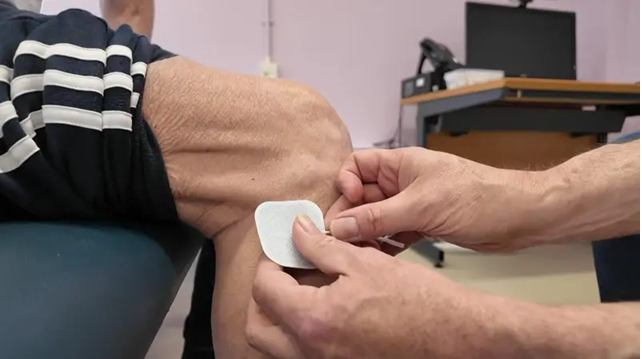Parkinson’s is a chronic progressive neurological condition. The symptoms are caused by the loss of dopamine producing cells in the brain. Dopamine affects memory, mood, and movement.
Even though there is a diagnosis of Parkinson’s, the dopamine producing cells in the brain continue to die off. Everyone’s journey with PD is unique.
When you first receive a diagnosis
When you receive a diagnosis of Parkinson’s it is important to remember that the disease is not your fault – and you are still the same person. All that’s changed is that you are now managing a health condition.
The progression of Parkinson’s is slow, and you have time to choose how you will react to your disease. It is an individual choice because everyone is affected differently, and symptoms may vary from day to day.
Be kind to yourself. It takes time to come to terms with your diagnosis and there is no ‘right’ way to react. Some people want to learn all they can about Parkinson’s whereas others prefer to limit their knowledge.
It is completely normal to feel scared, sad, and angry and to feel very emotional. Remember also that your diagnosis will have an impact on your partner, friends, and family members – and it will take time for them to readjust to the new future with Parkinson’s in their orbit.
Steps to managing the diagnosis
- Educate yourself about Parkinson’s. Knowledge means that you can make informed choices about how to manage the symptoms and not allow the symptoms to manage you. Good symptom management is key to quality of life.
- Determine your personal goals. Be proactive, practical, and realistic.
- Stay positive, retain your sense of humour, and laugh!
- Find and connect with a neurologist who you feel comfortable with and where there is two-way communication.
- Build a team to support and assist you with managing symptoms. This can include a neurologist, speech pathologist, physiotherapist, dietician, occupational therapist, and counsellor
- Seek someone to talk to about your diagnosis and future plans.
- Create healthy habits – be active, exercise and eat a healthy diet
- Take your medication on time every time. Also keep a diary on medication effectiveness to share at medical appointments.
- Particularly focus on managing stress because it makes the symptoms worse.
- Maintain your social connections. For example, join a Support Group and exercise group, or explore online options
- Review your hobbies and look at how you can do things differently in order to maintain them. In general, it is good to be flexible, adapt to change and consider all options.
- Ask for help; professional support can be very positive.
Managing the progression of Parkinson’s
It is inevitable that Parkinson’s will progress. However, a healthy approach is to focus on yourself as a whole person, not the disease itself. You have Parkinson’s but Parkinson’s does not have you!
Since there can be issues with cognition and making informed decisions as Parkinson’s progresses, it is better that early discussions occur with your caregiver and family members about long-term care requirements and management.
Ensure that you discuss with your partner, caregiver, and family members how you would like to be cared for when your symptoms begin to escalate. It is best for this discussion to start at the beginning of the Parkinson’s journey so that everyone is aware of your wishes and the way that you see the care plan heading.
This plan needs to be flexible and reviewed often. Advanced Care Directives are a good way to start the conversation.
Be aware that medication reviews can help to manage symptoms but will be less effective as your condition progresses. For example, if you experience hallucinations then a reduction in medication may be required – and this may be a trade off with mobility.
Not everyone can fulfil the role of caregiver and this needs to be discussed so that all the people involved have choices.
Nobody wants to reside in an aged care facility but if the care required cannot be provided by the caregiver and family then an informed decision needs to be made about how best that the person living with Parkinson’s can have their care needs met.
If this has raised any queries or concerns for you, please call our Parkinson’s NSW Infoline on 1800 727 567 to talk with Registered Nurses or to make an appointment to consult a Parkinson’s NSW Counsellor by phone, online, or in person.
Sources
Parkinson’s NSW Counsellors
Parkinson’s Disease Foundation
Wolters Kluwer Palliative Approach to Parkinson’s
American Parkinson’s Disease Association
Parkinson’s UK






